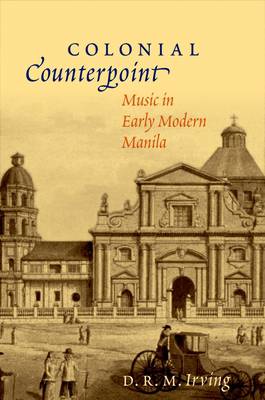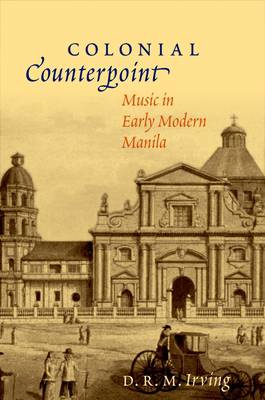
- Retrait gratuit dans votre magasin Club
- 7.000.000 titres dans notre catalogue
- Payer en toute sécurité
- Toujours un magasin près de chez vous
- Retrait gratuit dans votre magasin Club
- 7.000.0000 titres dans notre catalogue
- Payer en toute sécurité
- Toujours un magasin près de chez vous
Description
Named one of BBC History Magazine's "Books of the Year" in 2010 In this groundbreaking study, D. R. M. Irving reconnects the Philippines to current musicological discourse on the early modern Hispanic world. For some two and a half centuries, the Philippine Islands were firmly interlinked to Latin America and Spain through transoceanic relationships of politics, religion, trade, and culture. The city of Manila, founded in 1571, represented a vital intercultural nexus and a significant conduit for the regional diffusion of Western music. Within its ethnically diverse society, imported and local musics played a crucial role in the establishment of ecclesiastical hierarchies in the Philippines and in propelling the work of Roman Catholic missionaries in neighboring territories. Manila's religious institutions resounded with sumptuous vocal and instrumental performances, while an annual calendar of festivities brought together many musical traditions of the indigenous and immigrant populations in complex forms of artistic interaction and opposition. Multiple styles and genres coexisted according to strict regulations enforced by state and ecclesiastical authorities, and Irving uses the metaphors of European counterpoint and enharmony to critique musical practices within the colonial milieu. He argues that the introduction and institutionalization of counterpoint acted as a powerful agent of colonialism throughout the Philippine Archipelago, and that contrapuntal structures were reflected in the social and cultural reorganization of Filipino communities under Spanish rule. He also contends that the active appropriation of music and dance by the indigenous population constituted a significant contribution to the process of hispanization. Sustained "enharmonic engagement" between Filipinos and Spaniards led to the synthesis of hybrid, syncretic genres and the emergence of performance styles that could contest and subvert hegemony. Throwing new light on a virtually unknown area of music history, this book contributes to current
understanding of the globalization of music, and repositions the Philippines at the frontiers of research into early modern intercultural exchange.
understanding of the globalization of music, and repositions the Philippines at the frontiers of research into early modern intercultural exchange.
Spécifications
Parties prenantes
- Auteur(s) :
- Editeur:
Contenu
- Nombre de pages :
- 408
- Langue:
- Anglais
- Collection :
Caractéristiques
- EAN:
- 9780195378269
- Date de parution :
- 03-06-10
- Format:
- Livre relié
- Format numérique:
- Ongenaaid / garenloos gebonden
- Dimensions :
- 236 mm x 163 mm
- Poids :
- 697 g

Les avis
Nous publions uniquement les avis qui respectent les conditions requises. Consultez nos conditions pour les avis.






